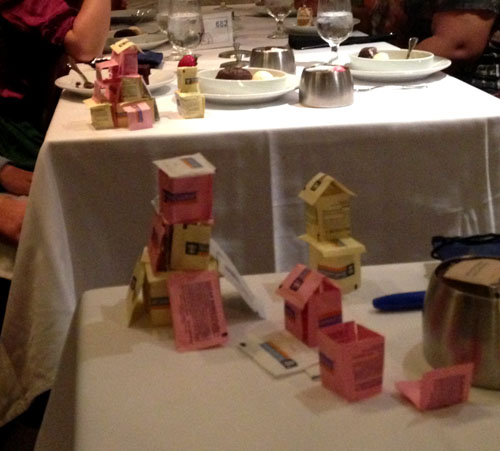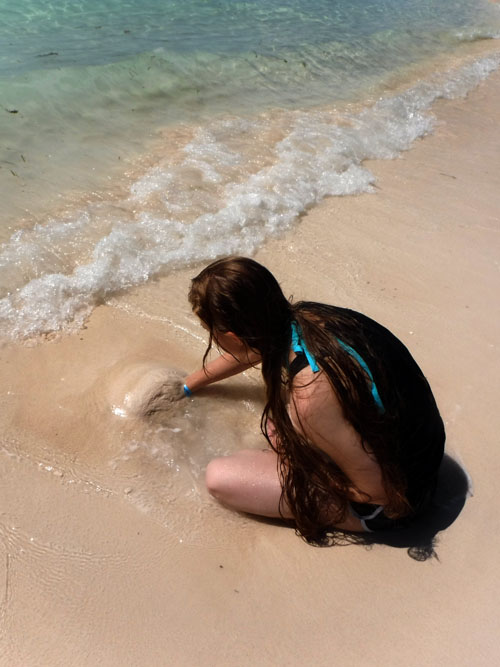On the Stairs
It was six pm and I was standing on the stairs watching my daughter on the floor of the landing while she had a panic attack. Life was too much. She could never do it all. She was failing at everything.
Every time I’m faced with one of these meltdowns, whether it be a panic attack, depressive episode, or OCD freak out, I have to choose. Do I use this moment as a learning opportunity, carefully nudging the person in front of me toward realizations? Most of the time I can so clearly see the choices they made that directly contributed to the meltdown. However, mentioning those choices often leads to lecture mode and the person shutting me out. Do I recognize the actual suffering in front of me and sit down with them in sympathy? This is more comfortable to me than confrontation, and thus I risk setting a pattern of meltdown and rescue. Except we all need rescue sometimes. Do I ignore both the sympathy and education paths to focus on management skills where they learn to set emotion aside and get stuff done anyway? Sometimes a little coaxing gets them moving, and motion makes things better. Other times, my push makes the meltdown worse, harder to pull out of. No choice is obviously right or wrong. The road is never clear.
Mostly as I stood there, leaning on the wall, I thought about how tired I was. How I’d spent several hours of afternoon helping another kid with his home school, and forcing us both to confront the fact that he is, once again, failing some of his in-school classes. That made me tired, discouraged. Because I’d thought things were going well. I’d thought he was stepping up and handling things. But he wasn’t. And we had to negotiate a carrot-and-stick agreement which hopefully will provide him with the necessary motivation to actually do the work and turn it in. I have an ongoing part in the motivational plan, a reoccurring task set, and I have to be willing to actually apply the agreed upon consequences. Even if the result is an unpleasant experience for everyone.
I also thought about how the other son has been in the depths of depression for days, completely unwilling to talk to me about it. He doesn’t want my answers. He rejects my experiences of depression and the tool set that I offer for dealing with it. He is absolutely sure that my answers won’t work for him. It is the same impasse we’ve had to varying degrees for several years now. A change is coming with the new year. It’ll be a big shift. It might finally offer him a way forward. It might be his path to a brighter and happier life. Or it might make everything much harder and darker. We have a long stretch of weeks before I can find out how the change goes. And that makes me tired too. Waiting is exhausting. Particularly when I have to watch him being miserable while I wait.
This all presses on me as I look at my daughter on the floor. The largest thought in my brain is that I really don’t want to help manage yet another emotional tangle. I was weary. In that moment, and many moments like it, I was irritated to have to deal with the excess of emotion. It was late in the day, I wanted to be unwinding and relaxing, not trading work effort for parenting effort. And I felt bad for these selfish thoughts and emotions. Maybe the right answer would have been for me to walk away. To let her figure it out for herself. I considered doing it, but I have to be completely convinced that leaving the person alone is the right course, and even then I’ll spend the time in a state of anxiety, actively preventing myself from going to them and trying to make it better. Walking away is as exhausting as staying.
So I stayed near and made exploratory statements down each possible path to see which one got a positive response. The solution turned out to be a blend: covering her with a weighted blanket and leaving her alone while I sorted a few jumbles of things in her room. Then she centered herself enough to request a reprieve from some home school assignments, which I granted. We made a plan for her to get math help the next day, and she pulled out her psychology homework. She ended up showering and heading to bed rather than completing the work, but she’ll likely be able to do it tomorrow without difficulty. We hope.
After all is sorted and calmed, I sit by myself with my computer. This wasn’t actually all that difficult a day. Not compared to days from the last several years. The ongoing struggles are real, but all of the kids are far better able to articulate what is going on inside their heads. They’re able to discuss problems and solutions with me in ways that they could not before. They’re able to listen when I explain why a situation is frustrating to me, instead of the faintest hint of my frustration turning them into curled up balls of stress panic. I can clearly see how much better off we all are than we were.
I’ll take that.
Tomorrow.
When I’ve had some time to rest.








